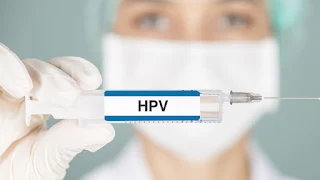HPV vaccine is a vaccine used to protect against a sexually transmitted disease caused by HPV, or Human Papilloma Virus. HPV is a disease that can be seriously prevented with a vaccine. HPV is considered a DNA virus and there are nearly 200 types. Although the disease is generally known for causing warts in the genital area and around the anus, warts may not be seen in every HPV type. HPV cases with warts are considered less dangerous. When the virus occurs without warts, it can pave the way for different types of cancer, especially cervical cancer in women and penile cancer in men.
HPV occurs especially in people who started their sexual life at an early age and in people who have multiple partners. Contagiousness is not only possible during sexual intercourse but also through contact with the infected area with the hand or other organs. Using a condom does not completely prevent the spread of this virus, but it can be said that it reduces the risk. The HPV vaccine is the most effective way to protect yourself from the virus and the diseases it causes.
When is the HPV vaccine administered?
It is recommended that vaccination be done in childhood to protect against human papillomavirus, which is the number one cause of cervical cancer. The ideal period for HPV vaccination is between the ages of 9-11. The demand for the vaccine, which is routinely applied in European and American countries, has also increased in Turkey in recent years. Although the vaccine is not routinely applied, the number of women who pay a certain fee to get vaccinated is increasing every day.
HPV Vaccine Types
There are two different brands of HPV vaccines on sale in Turkey. The two vaccines, Gardasil and Cervatix, protect against different types of HPV. With the Gerdasil vaccine, it is possible to protect against types 6, 11, 16 and 18 of HPV. Types 16 and 18 are the types that Cervatix also protects against.
Can I Get Vaccinated After Being Infected With HPV?
There is no harm in administering the vaccine even if the patient has human papillomavirus. The point to consider is which type of virus is present in the patient. Even if the vaccine does not provide an effect against the type present in the patient, it prevents the emergence of different types.
Can HPV Vaccine Be Given to Men?
The HPV vaccine can also be administered to men. It is extremely important to administer this vaccine before the first sexual intercourse of a man or woman. Administering the vaccine to men provides significant benefits in stopping the spread of the virus. The virus is most commonly transmitted from men to women. The types most commonly seen in men are types 6 and 11. Men who have no idea about the disease, refuse to receive treatment, or hide the disease also transmit the virus to their partners. Therefore, adding the HPV vaccine to the routine calendar is also important in terms of protecting public health.
HPV Vaccine Dosage Intervals
The number of doses and intervals of the vaccines vary depending on age. Two doses are administered for ages 9-14; 3 doses are administered for ages 14-26. There should be a 6-month gap between doses for ages 9-14. At ages 14-26, the 2nd dose is administered 2 months after the first dose; and the 3rd dose is administered 6 months after the first dose. There should be at least 3 months between the 3rd dose and the 2nd dose.
Does the Human Papillomavirus Vaccine Provide 100% Protection?
HPV vaccines provide the necessary protection against the type they are produced for for at least 10 years. Studies show that the protection period is longer. People who have received the HPV vaccine should not neglect protection during their active sexual life and medical check-ups in suspicious cases. Especially women should have smear and cervical cancer screening tests after a certain age, even if they are vaccinated. In this way, it becomes possible to diagnose diseases caused by different types of the virus early.



0 komentar:
Post a Comment